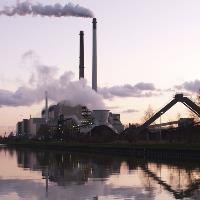(BRUSSELS) – EU states gave final approval Monday to a regulation establishing a EUR 17.5 billion fund which is designed to mitigate the consequences for those most affected by Europe’s transition away from fossil fuels.
Part of measures designed to help the EU achieve a 55% reduction in greenhouse gas emissions by 2030 and climate neutrality by 2050, the Just Transition Fund (JTF) will finance projects to alleviate the socio-economic costs for communities heavily dependent on fossil fuels or greenhouse gas-intensive industries who need to diversify the local economy.
“The Just Transition Fund will provide much needed support to companies and workers at local level,” said the Portuguese Minister for Planning Nelson de Souza, for the EU presidency, “so that we can combat climate change together as a Union, leaving no one behind.”
The JTF aims to prevent regional disparities by investing in territories which need to phase out the production and use of coal, lignite, peat and oil shale or transform heavily polluting industries.
Funding will be made available on the basis of plans prepared by member states together with local and regional authorities, having identified the most affected territories and their investment needs.
The total amount of 17.5 billion (in 2018 prices) is made up of 7.5 billion available for budgetary commitment for the period 2021-2027 and 10 billion from the recovery instrument (Next Generation EU) available over the years 2021, 2022 and 2023.
Member states will also contribute towards JTF programmes. In addition, they can transfer resources from the European Regional Development Fund and the European Social Fund Plus. This can potentially mobilise close to 30 billion in investment.
The JTF will support small and medium-sized enterprises (SMEs), including start-ups, and the creation of new firms.
A main emphasis of the fund is helping people adapt to new employment opportunities through investment in training and retraining of workers and job seekers, job-search assistance as well as measures for social inclusion.
Other types of investment include research and innovation, the transfer of advanced technologies, affordable green energy and energy storage, the decarbonisation of local transport, digitalisation, and enhancing the circular economy, including through waste prevention.
Excluded from the scope of support are investments related to nuclear power stations, fossil fuels and tobacco products.
Regulation establishing the Just Transition Fund including allocations per country in Annex I


